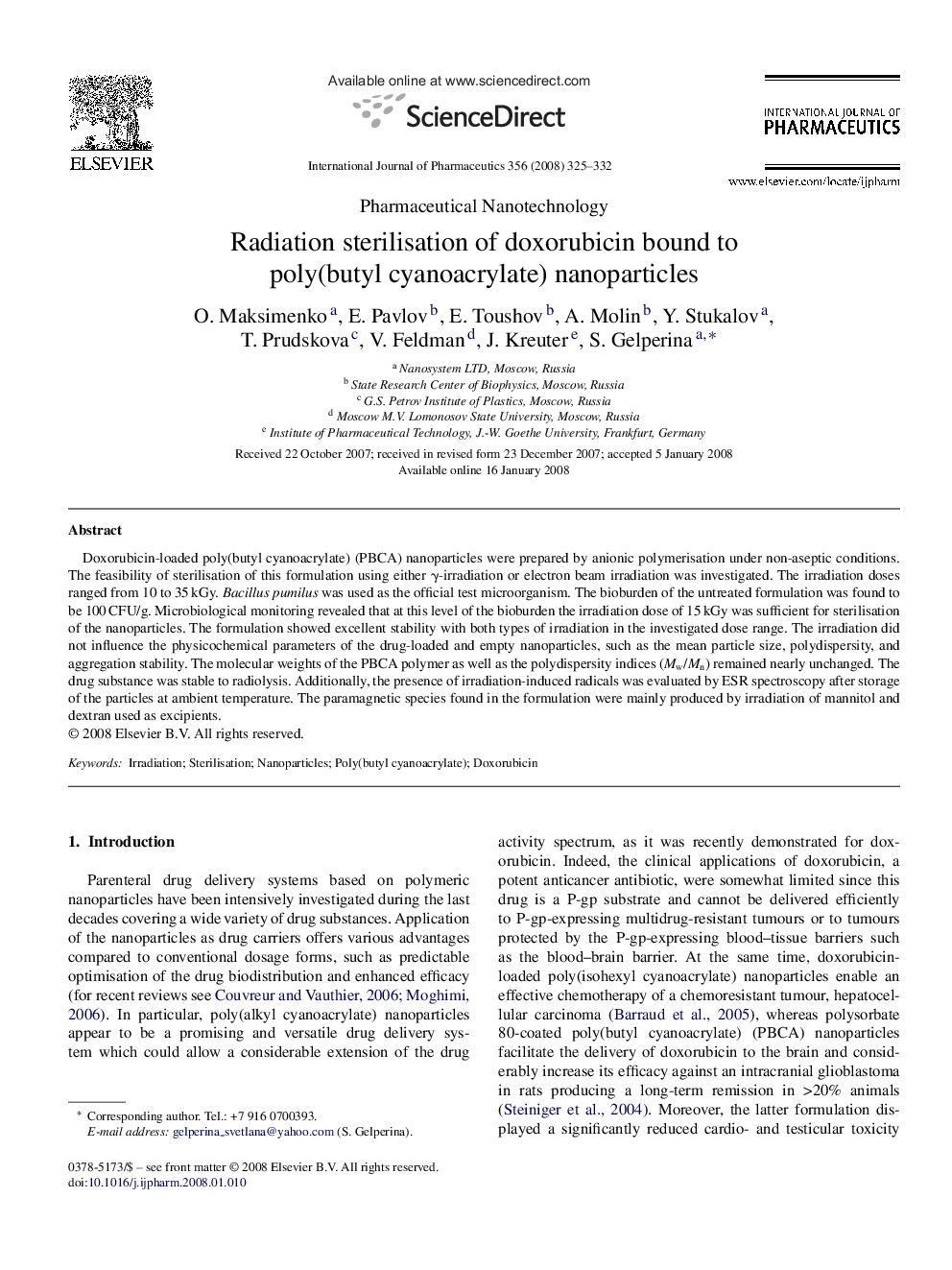| Article ID | Journal | Published Year | Pages | File Type |
|---|---|---|---|---|
| 2505464 | International Journal of Pharmaceutics | 2008 | 8 Pages |
Doxorubicin-loaded poly(butyl cyanoacrylate) (PBCA) nanoparticles were prepared by anionic polymerisation under non-aseptic conditions. The feasibility of sterilisation of this formulation using either γ-irradiation or electron beam irradiation was investigated. The irradiation doses ranged from 10 to 35 kGy. Bacillus pumilus was used as the official test microorganism. The bioburden of the untreated formulation was found to be 100 CFU/g. Microbiological monitoring revealed that at this level of the bioburden the irradiation dose of 15 kGy was sufficient for sterilisation of the nanoparticles. The formulation showed excellent stability with both types of irradiation in the investigated dose range. The irradiation did not influence the physicochemical parameters of the drug-loaded and empty nanoparticles, such as the mean particle size, polydispersity, and aggregation stability. The molecular weights of the PBCA polymer as well as the polydispersity indices (Mw/Mn) remained nearly unchanged. The drug substance was stable to radiolysis. Additionally, the presence of irradiation-induced radicals was evaluated by ESR spectroscopy after storage of the particles at ambient temperature. The paramagnetic species found in the formulation were mainly produced by irradiation of mannitol and dextran used as excipients.
